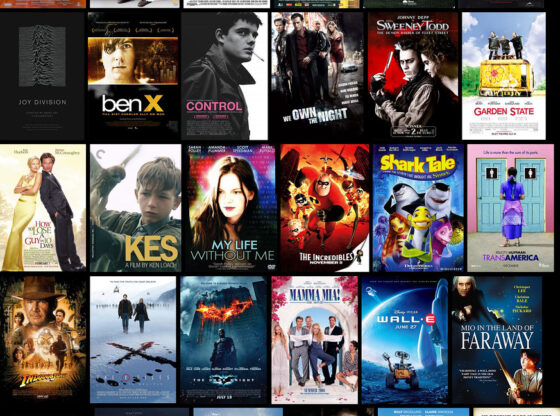Clint Eastwood’s “American Sniper,” released Jan. 16, 2015, is an engrossing account of the Iraq War as witnessed from the bird’s eye view of Navy SEAL Chris Kyle. Kyle secured his standing as the deadliest marksman in U.S. military history after four tours and 160 confirmed kills.
Viewers are hard-wired into Kyle’s traumatized psyche as Bradley Cooper (“Silver Linings Playbook,” “American Hustle”) puts on a deeply affecting performance. This intimate character study provides blunt observations of the psychological and physical expenses imposed on the front lines with a sobering clarity.
Viewers first meet Kyle hunched over a rooftop looking down at a blown-out building in Fallujah, Iraq, taking fatal aim at an Iraqi woman and her young son. Only Kyle, from his vantage point, can see that the mother-son duo are about to lob a grenade at some of his fellow marines nearby. After the charged circumstances are introduced, the film flashes back to Kyle’s life as a young child growing up in Texas, establishing him a talented shooter from a young age and a fierce protector to Jeff, his younger brother (Luke Sunshine). After a brief cowboy lifestyle and rodeo career, Kyle’s passionate patriotism inspires him to become a Navy SEAL.
The film’s flashbacks include an intimate and humorous scene in which Kyle wins over the alluring Taya, portrayed by Sienna Miller (“Foxcatcher,” “Casanova”), in spite of her personal rule against dating any “arrogant, self-centered pricks” who don the title SEAL. Yet in this scene, Kyle contradicts that description, showing himself to be a red-blooded American committed to his faith and motivated to fight—as so many were—by the devastation of 9/11 and his desire to avenge “the greatest country in the world.” Kyle and Taya barely have time to say “I do” before Kyle gets shipped off to Fallujah, where he serves himself and his cohorts well with his excellent sniper abilities.
This is where the story catches up to that tense mother-son setup, only this time audiences are not spared the horrendous result. Following his kills, Kyle says to a comrade, “That was evil like I had never seen before”—a reflection that sets the tone for the rest of the movie. As the movie progresses, so does Kyle’s frustration at always having to carry out his tasks from a distance rather than down with his cohorts, and the difficulty of learning whom to trust in this hostile environment.
Less powerful and not as competently-carried out as the war scenes are the regular cutaways to Taya and their two children providing the obligatory, unyielding reminders that his loved ones are sacrificing dearly for his military service.
When Kyle is home he is distant and hardly-functioning—cue Taya’s painfully awkward and obvious dialogue, “Even when you’re here, you’re not here.” What is effective in these scenes, though, is the cognizance that Kyle’s home life has been taken over by the war zone, and his precious time with family is escaping him; viewers see his kids only at brief intervals, and the swiftness with which they grow up must be as alarming for Kyle as it is for us.
“American Sniper” relies on Cooper—who has been nominated for an Academy Award for Best Actor for this movie—and his subtle yet noticeably expressive performance, allowing for many of the unspoken war-scars to be read plainly in the actors face. Cooper is superb here, shown not just reacting but thinking: whether he’s trying to understand the difference between his uneager-Marine brother, played by Keir O’ Donnell (“Wedding Crashers,” “Paul Blart: Mall Cop”) and himself or shrugging awkwardly when someone calls him a “hero,” as though the word were a particularly uncomfortable jacket.
The decision to leave out Kyle’s actual death (he was shot by a war-vet he was helping) is a masterful one, as this allows the movie’s focus to stay on the tragic effects of war on its participants and reinforces the clash between the hell of modern warfare and the purgatory of middle-class American life.
The film has broken box-office records, raking in $90.2 million over Martin Luther King Jr. holiday weekend. But it has divided viewers and critics alike in its exploration of war and patriotism. Several high-profile celebrities, including Bill Maher, Seth Rogan and Michael Moore have spoken out about the Oscar Nominee. Some argue it is a piece of war propaganda, others consider Chris Kyle a murderer and disagree with the film’s portrayal of him as a hero. Rolling Stone labeled the film “too dumb to criticize.” Yet, “Sniper” has clearly connected with audiences as its box-office records have proven. Pioneers interested in deciding for themselves can catch “American Sniper” in theaters now.











